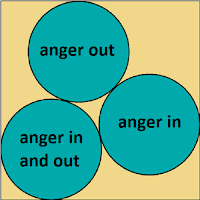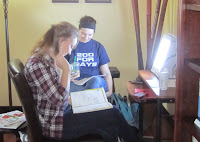When a crisis event occurs, it can cause strong reactions in parents, teachers – and kids, especially those with High Functioning Autism (HFA). There are many “crisis response” resources that are appropriate for use with "special needs" children, provided that individual consideration is given to the youngster’s developmental and emotional maturity. How parents and teachers react, respond, or express their feelings will influence the reactions of HFA kids. Furthermore, these young people will react to the stress based on their past experience and awareness of the current situation. Adults who know the youngster well can best predict his or her reactions and behaviors, because they have observed the youngster’s response to stress in the past. A trigger is a thought about a situation that leads to an inappropriate response to that situation (i.e., it is not the situation or the feeling that is the problem, rather it is how the children “think” about these thi


